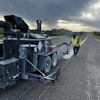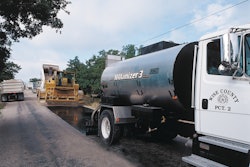SAFETEA-LU, the federal surface transportation bill, expires on March 31. Enacting a bill by then requires quickly overcoming big political challenges (e.g., how to fund the bill) and procedural challenges (e.g., deadlines for committees to act).
Incidentally, overcoming those challenges and enacting a bill could significantly increase the positive image of Congress. Arecent survey indicated "a record 84 percent of Americans disapprove of the job Congress is doing, with almost two-thirds saying they "disapprove strongly."
Today we look at the challenges which are more political than procedural or policy-related and must overcome in order to enact a bill by March 31. Next we'll look at the procedural challenges.
1. Total funding level.
House Republicans must decide how much overall funding they want – and how much they can get approved by their caucus. In early 2011 the caucus approved a budget that would have reduced transportation funding by 30%; later in 2011 backed away from that proposal. The caucus is in a "cutting" not "spending" mode. If the caucus proposes too little overall funding they risk a deadlock with the Senate which will prefer higher funding.
Senate Democrats must decide how much overall funding they want – and how much they can get approved by 60 Senators. Some number of Republican supporters will be needed, especially with the possibility of losing a few Democratic supporters. If they propose too high of overall funding, they risk deadlock with the House which will prefer lower funding.
Sure, total funding dictates how robust programs will be and how many projects will advance. But the total funding level decision will be more politically driven than policy driven.
2. Funding mechanisms.
House Republicans are proposing to use revenue from expanded energy exploration (e.g, oil and natural gas expansion), claiming there is a "natural link" between new sources of domestic oil and a modern infrastructure. Senate Democrats and the White House are adamantly opposed. A gas tax increase has been ruled out by the House, Senate, and White House.
3. Length of bill
House Transportation Chair John Mica adamantly supports a six-year bill. Public agencies applaud this as it provides financial certainty regardless of how much total funding is provided. The Senate strongly prefers a two-year bill.




















